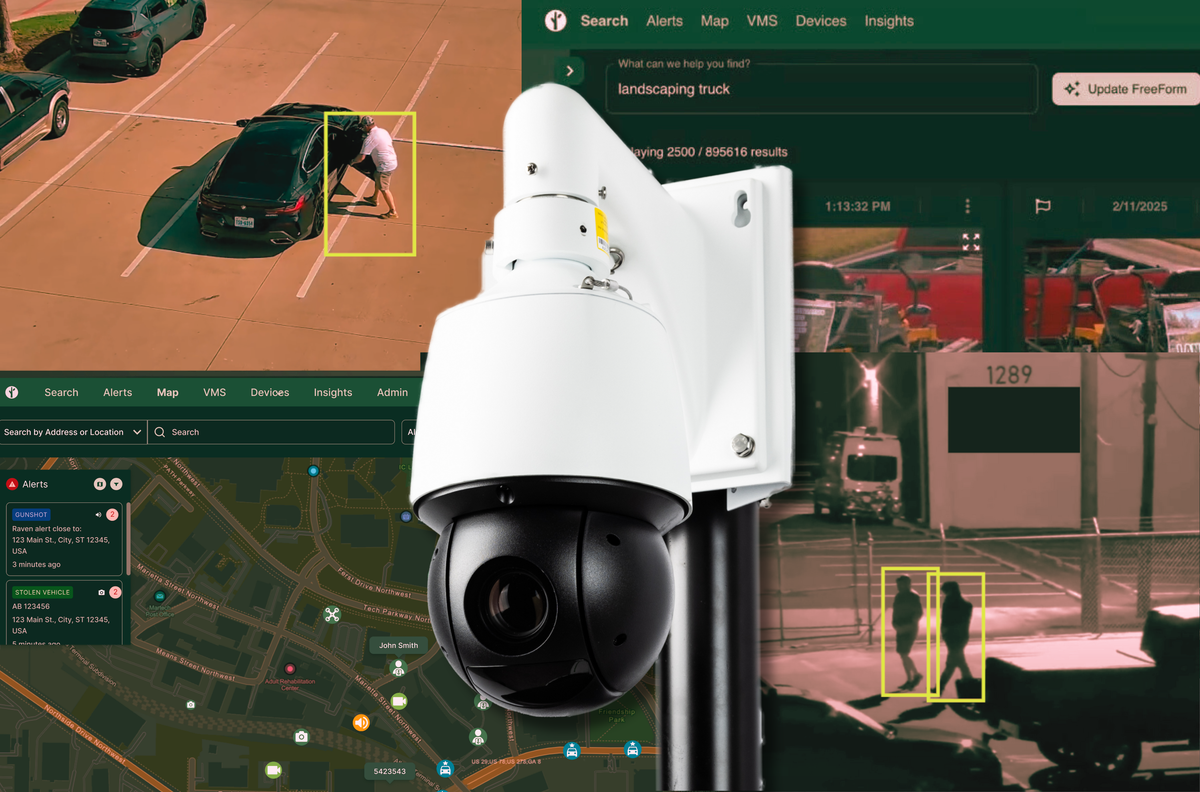A ban on state AI laws could smash Big Tech’s legal guardrails
-
Senate Commerce Republicans have kept a ten year moratorium on state AI laws in their latest version of President Donald Trump’s massive budget package. And a growing number of lawmakers and civil society groups warn that its broad language could put consumer protections on the chopping block.
Republicans who support the provision, which the House cleared as part of its “One Big Beautiful Bill Act,” say it will help ensure AI companies aren’t bogged down by a complicated patchwork of regulations. But opponents warn that should it survive a vote and a congressional rule that might prohibit it, Big Tech companies could be exempted from state legal guardrails for years to come, without any promise of federal standards to take their place.
Not to mention, if/when federal standards are created, the standards will be determined by a federal government that is being run by the broligarchs. These are the people we need to be protected from. They've had the idea of federal "regulations" that will allow them to do whatever they need to succeed planned since at least 2019.
Relying only on federal AI regulations to protect Americans in 2025, would be like the federal government relying on George Wallace to create the Civil Rights Act in the 1960s.
Altman also later cautioned against a patchwork regulatory framework for AI.
“It is very difficult to imagine us figuring out how to comply with 50 different sets of regulations,” said Altman. “One federal framework that is light touch, that we can understand, and it lets us move with the speed that this moment calls for, seems important and fine.”
Peter Thiel protege, Michael Kratsios regarding AI regulation in 2019
“A patchwork of regulation of technology is not beneficial for the country. We want to avoid that. Facial recognition has important roles—for example, finding lost or displaced children. There are use cases, but they need to be underpinned by values.”

A ban on state AI laws could smash Big Tech’s legal guardrails
The Senate is pushing ahead with language in its budget bill that could restrict states from regulating AI for a decade, and opponents warn it could hamper other consumer protections.

The Verge (www.theverge.com)
-
Senate Commerce Republicans have kept a ten year moratorium on state AI laws in their latest version of President Donald Trump’s massive budget package. And a growing number of lawmakers and civil society groups warn that its broad language could put consumer protections on the chopping block.
Republicans who support the provision, which the House cleared as part of its “One Big Beautiful Bill Act,” say it will help ensure AI companies aren’t bogged down by a complicated patchwork of regulations. But opponents warn that should it survive a vote and a congressional rule that might prohibit it, Big Tech companies could be exempted from state legal guardrails for years to come, without any promise of federal standards to take their place.
Not to mention, if/when federal standards are created, the standards will be determined by a federal government that is being run by the broligarchs. These are the people we need to be protected from. They've had the idea of federal "regulations" that will allow them to do whatever they need to succeed planned since at least 2019.
Relying only on federal AI regulations to protect Americans in 2025, would be like the federal government relying on George Wallace to create the Civil Rights Act in the 1960s.
Altman also later cautioned against a patchwork regulatory framework for AI.
“It is very difficult to imagine us figuring out how to comply with 50 different sets of regulations,” said Altman. “One federal framework that is light touch, that we can understand, and it lets us move with the speed that this moment calls for, seems important and fine.”
Peter Thiel protege, Michael Kratsios regarding AI regulation in 2019
“A patchwork of regulation of technology is not beneficial for the country. We want to avoid that. Facial recognition has important roles—for example, finding lost or displaced children. There are use cases, but they need to be underpinned by values.”

A ban on state AI laws could smash Big Tech’s legal guardrails
The Senate is pushing ahead with language in its budget bill that could restrict states from regulating AI for a decade, and opponents warn it could hamper other consumer protections.

The Verge (www.theverge.com)
These two raging assholes just want easier monopolies.
Anything either of those two says, the rest of us can be sure it's not to our benefit.
-
Senate Commerce Republicans have kept a ten year moratorium on state AI laws in their latest version of President Donald Trump’s massive budget package. And a growing number of lawmakers and civil society groups warn that its broad language could put consumer protections on the chopping block.
Republicans who support the provision, which the House cleared as part of its “One Big Beautiful Bill Act,” say it will help ensure AI companies aren’t bogged down by a complicated patchwork of regulations. But opponents warn that should it survive a vote and a congressional rule that might prohibit it, Big Tech companies could be exempted from state legal guardrails for years to come, without any promise of federal standards to take their place.
Not to mention, if/when federal standards are created, the standards will be determined by a federal government that is being run by the broligarchs. These are the people we need to be protected from. They've had the idea of federal "regulations" that will allow them to do whatever they need to succeed planned since at least 2019.
Relying only on federal AI regulations to protect Americans in 2025, would be like the federal government relying on George Wallace to create the Civil Rights Act in the 1960s.
Altman also later cautioned against a patchwork regulatory framework for AI.
“It is very difficult to imagine us figuring out how to comply with 50 different sets of regulations,” said Altman. “One federal framework that is light touch, that we can understand, and it lets us move with the speed that this moment calls for, seems important and fine.”
Peter Thiel protege, Michael Kratsios regarding AI regulation in 2019
“A patchwork of regulation of technology is not beneficial for the country. We want to avoid that. Facial recognition has important roles—for example, finding lost or displaced children. There are use cases, but they need to be underpinned by values.”

A ban on state AI laws could smash Big Tech’s legal guardrails
The Senate is pushing ahead with language in its budget bill that could restrict states from regulating AI for a decade, and opponents warn it could hamper other consumer protections.

The Verge (www.theverge.com)
Do it! Regulate these fuckers out of existence!
-
Do it! Regulate these fuckers out of existence!
Exactly!
Oh regulations would cut into your profits? Boo fucking hoo
-
These two raging assholes just want easier monopolies.
Anything either of those two says, the rest of us can be sure it's not to our benefit.
Exactly, they created this nightmare dystopia, sunk all their money into AI and if we don't allow them to just invade our privacy like it's their personal kingdom, and we exist to feed their data centers, they're fucked.
The entire economy is fucked, but that's 100% on them.
They wanted to just dive in head first, cut a bunch of jobs and replace everyone with AI. Who in their right mind would think that we should allow these people fewer regulations now, so they can make more money via exploitation of humans?
-
Senate Commerce Republicans have kept a ten year moratorium on state AI laws in their latest version of President Donald Trump’s massive budget package. And a growing number of lawmakers and civil society groups warn that its broad language could put consumer protections on the chopping block.
Republicans who support the provision, which the House cleared as part of its “One Big Beautiful Bill Act,” say it will help ensure AI companies aren’t bogged down by a complicated patchwork of regulations. But opponents warn that should it survive a vote and a congressional rule that might prohibit it, Big Tech companies could be exempted from state legal guardrails for years to come, without any promise of federal standards to take their place.
Not to mention, if/when federal standards are created, the standards will be determined by a federal government that is being run by the broligarchs. These are the people we need to be protected from. They've had the idea of federal "regulations" that will allow them to do whatever they need to succeed planned since at least 2019.
Relying only on federal AI regulations to protect Americans in 2025, would be like the federal government relying on George Wallace to create the Civil Rights Act in the 1960s.
Altman also later cautioned against a patchwork regulatory framework for AI.
“It is very difficult to imagine us figuring out how to comply with 50 different sets of regulations,” said Altman. “One federal framework that is light touch, that we can understand, and it lets us move with the speed that this moment calls for, seems important and fine.”
Peter Thiel protege, Michael Kratsios regarding AI regulation in 2019
“A patchwork of regulation of technology is not beneficial for the country. We want to avoid that. Facial recognition has important roles—for example, finding lost or displaced children. There are use cases, but they need to be underpinned by values.”

A ban on state AI laws could smash Big Tech’s legal guardrails
The Senate is pushing ahead with language in its budget bill that could restrict states from regulating AI for a decade, and opponents warn it could hamper other consumer protections.

The Verge (www.theverge.com)
What ever happened to "state's rights"?
I guess that was just a convenient excuse to keep people as slaves, huh?

-
Senate Commerce Republicans have kept a ten year moratorium on state AI laws in their latest version of President Donald Trump’s massive budget package. And a growing number of lawmakers and civil society groups warn that its broad language could put consumer protections on the chopping block.
Republicans who support the provision, which the House cleared as part of its “One Big Beautiful Bill Act,” say it will help ensure AI companies aren’t bogged down by a complicated patchwork of regulations. But opponents warn that should it survive a vote and a congressional rule that might prohibit it, Big Tech companies could be exempted from state legal guardrails for years to come, without any promise of federal standards to take their place.
Not to mention, if/when federal standards are created, the standards will be determined by a federal government that is being run by the broligarchs. These are the people we need to be protected from. They've had the idea of federal "regulations" that will allow them to do whatever they need to succeed planned since at least 2019.
Relying only on federal AI regulations to protect Americans in 2025, would be like the federal government relying on George Wallace to create the Civil Rights Act in the 1960s.
Altman also later cautioned against a patchwork regulatory framework for AI.
“It is very difficult to imagine us figuring out how to comply with 50 different sets of regulations,” said Altman. “One federal framework that is light touch, that we can understand, and it lets us move with the speed that this moment calls for, seems important and fine.”
Peter Thiel protege, Michael Kratsios regarding AI regulation in 2019
“A patchwork of regulation of technology is not beneficial for the country. We want to avoid that. Facial recognition has important roles—for example, finding lost or displaced children. There are use cases, but they need to be underpinned by values.”

A ban on state AI laws could smash Big Tech’s legal guardrails
The Senate is pushing ahead with language in its budget bill that could restrict states from regulating AI for a decade, and opponents warn it could hamper other consumer protections.

The Verge (www.theverge.com)
I thought they cared about states rights?
How are they able to even ban states from passing laws
-
I thought they cared about states rights?
How are they able to even ban states from passing laws
I'm not 100% sure about actually preventing states from creating laws, but given what's happening in my city rn I would imagine, if this passes, it gives federal agencies and private companies the ability to legally ignore any city and state regulations that might be passed.
My city used to have a complete ban on facial recognition and predictive policing tech after they were caught secretly working with Palantir. In 2022, the mayor requested the ban be lifted and replaced with an ordinance.
Police in my city got caught violating the very weak ordinance that regulates how facial recognition is supposed to be used.
Since WaPo exposed them, they've allegedly paused using the tech. However, the tech is provided by a private company, and the city can't enforce their regulations on the state police and ICE agents that are still using the tech with zero oversight.
Given how we know states like TX have already signed up to have their national guard invade other states in order to enforce Trump's immigration policy, this could provide legal protection for the Texas national guard to come into a state like California and use it however they deem necessary.
They could start out by saying it's necessary to enforce immigration (which would be fucked up enough). Very quickly it becomes necessary to protect ICE agents from protestors, and they begin using facial recognition to track protestors and anyone loosely associated with protestors.
There's no way for the city or state laws to do anything about this bc the Texas National Guard have essentially been given blanket protection by a federal law to use AI to enforce federal immigration policy. Essentially, instead of the national guard being sent to southern states to enforce civil rights like what happened in the 1960s, the national guard from a red state would be sent into a blue state to enforce a dystopian cyber-surveillance nightmare created by the federal government.
Keep in mind this is just one possibility. Even without all that happening, the best case scenario of allowing a ban on state regulations, is you're providing legal protection for private corporations to collect data however they want and do whatever they want with it once it's collected.
-
What ever happened to "state's rights"?
I guess that was just a convenient excuse to keep people as slaves, huh?

Look, I don't understand whether they want states' rights or not. Because one moment they're in favor of the federal government having power, and the next they're in favor of the states having power.
Because if they want states to have power, they should only be concerned with things that affect their state. If another state makes bad decisions, we can only hope that its population corrects those mistakes as quickly as possible.
Or if they want the federal government to have power, everyone should be informed of changes, both the population and the states. These laws should benefit the majority.
There is also a third option: there should be a balance between state and federal power.
-
What ever happened to "state's rights"?
I guess that was just a convenient excuse to keep people as slaves, huh?

It's always been "states rights" to enrich rulers at the expense of everyone else.






